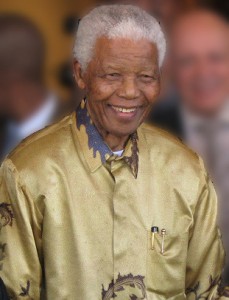Related Posts
Mandela—an exceptional man leaves an extraordinary legacy
I heard the story of Nelson Mandela’s passing last week as I was driving home. I could not pull myself away from the compelling story of Mandela’s life. The next morning, I read every word of the New York Times coverage. Immersing myself in his life, I felt incredible sadness and deep loss. I studied the photos of the prison cell in which Mandela had been incarcerated and thought about the spirit of a man who would not be destroyed by 27 years in prison. He turned prison into a bully pulpit and emerged with a worldwide audience. He negotiated with South African leaders to achieve the end of apartheid—an amazing accomplishment that changed the course of history. That he did this, became president in 1994 and attempted to bring about a democracy without rancor toward his country’s former leaders–or toward whites, in general–is evidence of Mandela’s truly remarkable character, vision and communication skills.
I was captivated particularly by stories about the 1995 World Cup when President Mandela famously turned up in a Springbok jersey to watch South Africa beat New Zealand in their final rugby game.
After the game, Nelson Mandela celebrated with the team. Understanding that sport can bring people together and break down racial barriers, he used the symbolic power of a T-shirt to reinforce the vision of a united South Africa.
“One of the most difficult things is not to change society–but to change yourself,” Mandela had said in 1999 at a tribute to billionaire businessman Douw Steyn, who had made his Johannesburg residence available to Mandela as a retreat after his prison release in 1990. So recounts a Jacksonville, Fla., reporter and a blogger on thinkBIG.
Changing ourselves is truly one of the greatest challenges we face.

